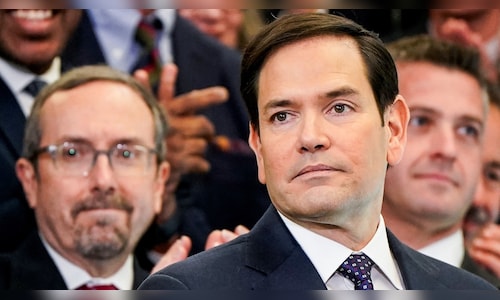A classified State Department cable dated February 24, obtained by The Guardian, instructs visa officers to enforce Section 212(a)(6)(C)(i) of the Immigration and Nationality Act—known as the “permanent fraud bar”—against transgender applicants. Unlike standard visa denials, this provision results in a lifetime ban from entering the United States, with only limited opportunities for waivers.
“In cases where applicants are suspected of misrepresenting their purpose of travel or sex, you should consider whether this misrepresentation is material such that it supports an ineligibility finding,” states the directive issued by US Secretary of State Marco Rubio.
The order follows an executive action signed by President Donald Trump on February 5, barring transgender athletes from competing in women’s sports. During the signing, Trump instructed Homeland Security Secretary Kristi Noem to refuse visas to “men attempting to fraudulently enter the United States while identifying themselves as women athletes”—a policy that would apply during the 2028 Los Angeles Olympics under his administration.
Trump also directed Rubio to inform the International Olympic Committee that the US “will not stand by and watch men beat and batter female athletes.”
It remains uncertain how many transgender athletes may attempt to compete in the 2028 Olympics, though New Zealand weightlifter Laurel Hubbard made history as the first openly transgender Olympian at the Tokyo Games in 2020. In 2024, American runner Nikki Hiltz competed at the Paris Olympics.
Beyond the Olympics, the directive would also impact other women’s sports leagues that permit transgender athletes, including the National Women’s Soccer League (NWSL) and the Women’s National Basketball Association (WNBA), as well as future Women’s World Cup tournaments hosted in the US.


